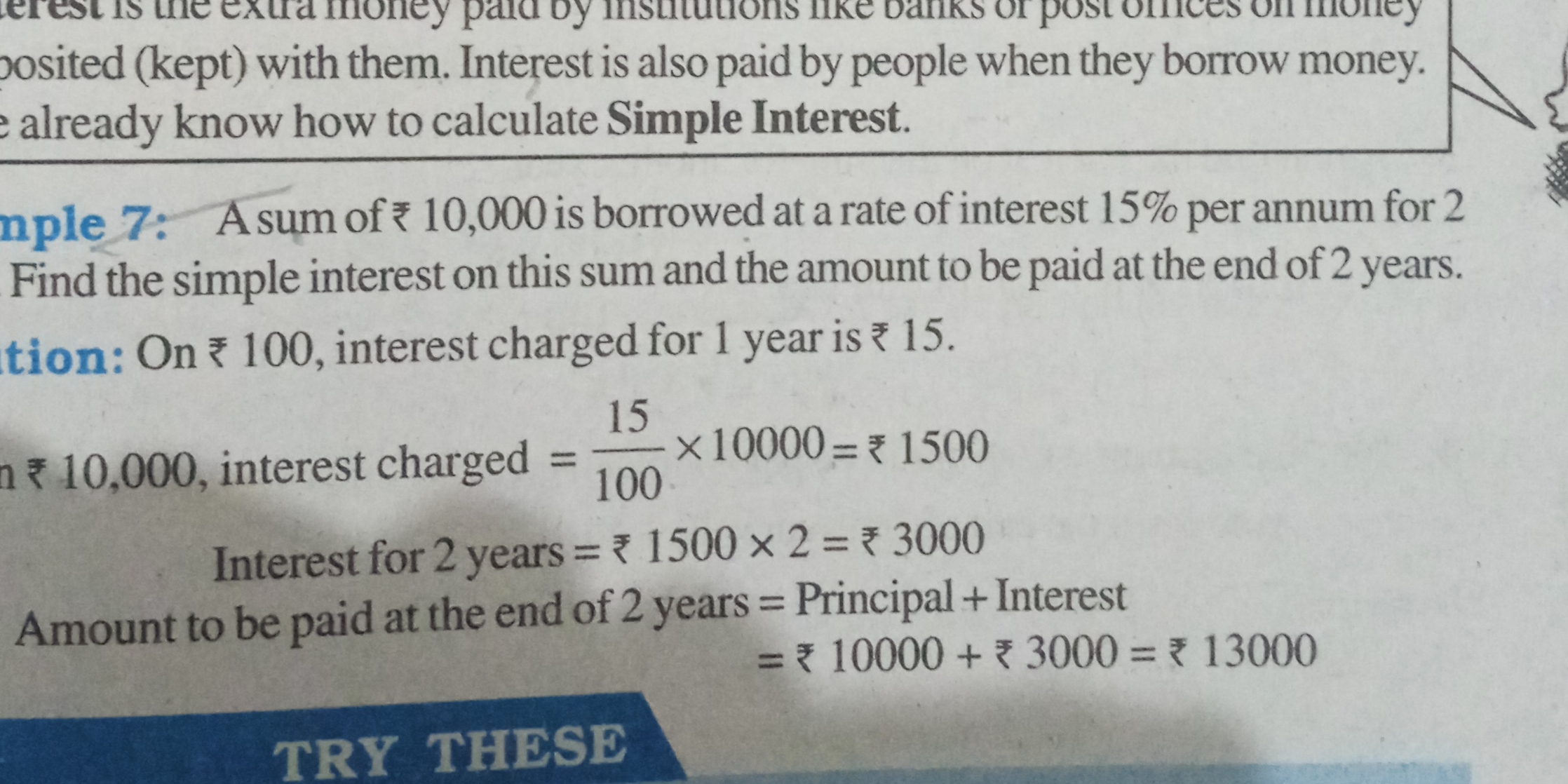A sum of ₹10,000 is borrowed at a rate of interest 15% per annum for 2 years. Find the simple interest on this sum and the amount to be paid at the end of 2 years.

Understand the Problem
The question requires us to calculate the simple interest on a borrowed sum of ₹10,000 at a 15% annual interest rate over a period of 2 years. Additionally, it asks for the total amount to be paid back at the end of this period.
Answer
The simple interest is ₹3000, and the total amount to be paid back is ₹13000.
Answer for screen readers
The simple interest is ₹3000, and the total amount to be paid back is ₹13000.
Steps to Solve
- Identify the formula for Simple Interest
The formula for calculating simple interest (SI) is given by:
$$ SI = \frac{P \times R \times T}{100} $$
where:
$P$ = Principal amount (the initial sum of money)
$R$ = Rate of interest per annum
$T$ = Time in years
- Substitute the values into the formula
In this case:
$P = 10000$ (the borrowed sum)
$R = 15$ (interest rate)
$T = 2$ (time in years)
Substituting these values into the formula gives:
$$ SI = \frac{10000 \times 15 \times 2}{100} $$
- Calculate the Simple Interest
Now, calculate the simple interest:
$$ SI = \frac{300000}{100} = 3000 $$
So, the simple interest for 2 years is ₹3000.
- Calculate the total amount to be paid back
The total amount (A) to be paid back at the end of 2 years is the sum of the principal amount and the simple interest:
$$ A = P + SI $$
Substituting in the values gives:
$$ A = 10000 + 3000 $$
- Final Calculation for Total Amount
Thus, the total amount to be paid back is:
$$ A = 13000 $$
The simple interest is ₹3000, and the total amount to be paid back is ₹13000.
More Information
Simple interest is a straightforward way to calculate interest, commonly used in loans and deposits. The total amount reflects the initial principal plus the interest earned or paid.
Tips
- Forgetting to multiply the interest by the number of years.
- Miscalculating either the formula variables or the final addition of principal and interest.
- Not converting the percentage to a decimal or appropriately adjusting for the formula.
AI-generated content may contain errors. Please verify critical information